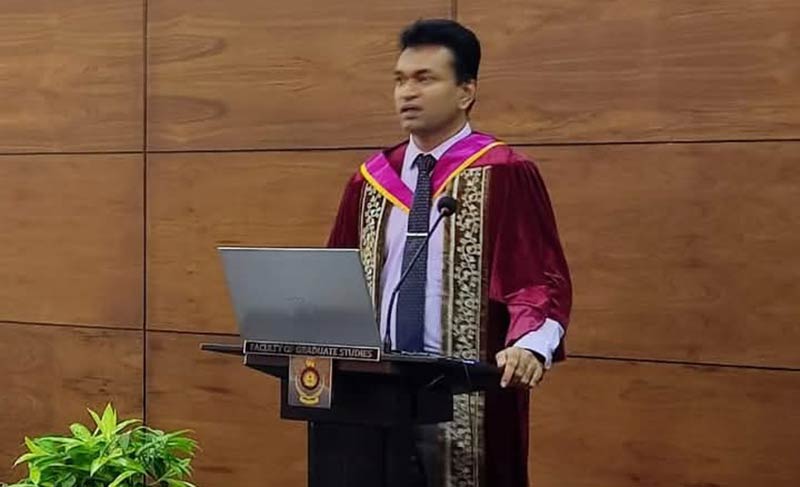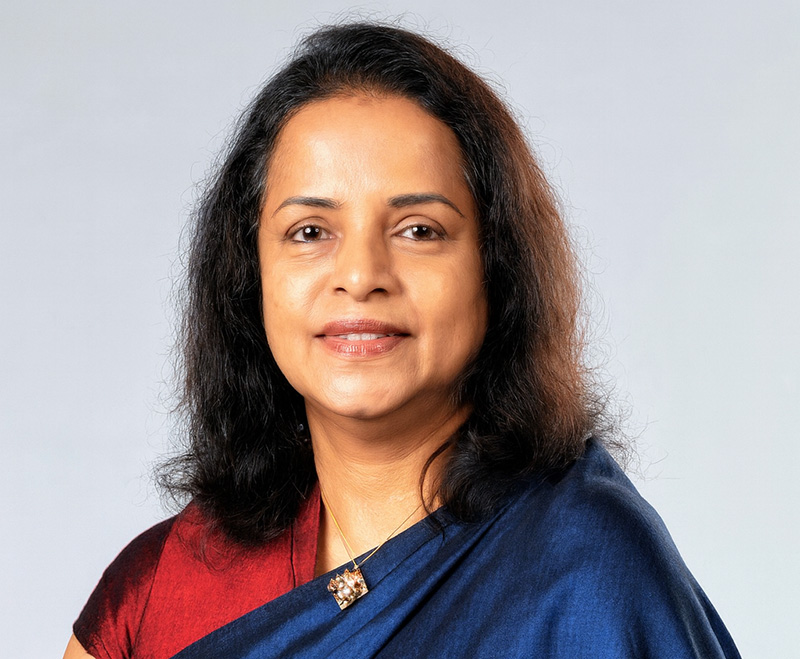Business
‘The devil is in the details’ in electricity sector reforms

By Ifham Nizam
Sri Lanka’s electricity sector is undergoing a seismic transformation with the proposed amendments in the Electricity Act No. 36 of 2024. With the primary aim of restructuring the Ceylon Electricity Board (CEB), these reforms promise to reshape the country’s energy landscape. But experts, including Professor Asanka Rodrigo from the Department of Electrical Engineering at the University of Moratuwa, caution that while the reforms hold potential, they could also lead to unintended consequences if not executed with clarity and precision.
The Institution of Engineers, Sri Lanka (IESL) initiated an open dialogue on the Ministry of Energy’s proposed amendments to the Electricity Act. Aiming to engage diverse stakeholders, the workshop titled ‘Power Sector Reforms: IESL Perspective’, was held last Friday at the IESL auditorium.
Rodrigo said that the proposed changes seek to restructure the current CEB into 12 independent entities, including four generation companies, a 100% government-owned National System Operator (NSO), a National Transmission and Network Service (NTNS) company, and four independent distribution companies. This restructuring intends to pave the way for a competitive wholesale electricity market within five years. However, despite the Act’s ambitious goals, the transition remains murky, with critics arguing that it lacks the comprehensive guidelines needed to ensure smooth implementation.
Rodrigo, an authority on electrical engineering, acknowledges the need for reform but emphasizes the importance of strategic planning. “The reform is undoubtedly necessary to foster competition and improve operational efficiency. But the devil is in the details, and right now, we lack the specifics on how to achieve these lofty objectives,” he states. One of his key concerns is the weak clauses within the Act regarding the transformation process, which could potentially undermine the very competition the reforms aim to establish.
In addition to restructuring, the Act also calls for the formation of a National Electricity Advisory Council tasked with advising the minister on energy policy. However, Rodrigo warns that certain provisions may allow for direct ministerial interference in regulatory affairs, raising concerns about the independence of the sector. “While governance should certainly be accountable, excessive ministerial control over the National System Operator is troubling. The sector needs an independent regulator to ensure impartiality and the long-term sustainability of the market,” he says.
The complexities deepen with the concept paper’s more intricate proposal, which suggests creating 14 state-owned companies instead of the initial 12. These include holding companies for generation, transmission, and distribution, along with a company for the CEB fund. Yet, questions remain about the necessity of additional holding companies that do not engage in core electricity sector operations. “Introducing more layers of bureaucracy without clear functions risks complicating the system instead of simplifying it,” he notes. “We need to ensure that each new entity has a distinct role and contributes to sector efficiency rather than creating redundancy.”
Perhaps one of the most contentious proposals is the reduction of the standardized power purchase agreement (SPPA) limit to plants not exceeding 1 MW, down from the current 10 MW. This decision has raised alarms among renewable energy advocates, who fear it will hinder the integration of solar, wind, and other renewable sources into the grid. “Renewable energy investments require stability and long-term planning, says Rodrigo. “By reducing the SPPA limit too drastically, we risk stalling progress and discouraging future investments in renewable energy.”
Rodrigo believes that the country must maintain a balanced approach to renewable energy integration. “While the reduction of the SPPA limit is intended to support smaller-scale projects, it should not come at the expense of larger, more impactful renewable energy investments, he advises. A gradual approach to reducing the SPPA limit, with clear incentives for renewable energy developers, would create a more favorable environment for long-term investment.
Business
ADB approves support to strengthen power sector reforms in Sri Lanka

The Asian Development Bank (ADB) has approved a $100 million policy-based loan to further support Sri Lanka in strengthening its power sector. This financing builds on earlier initiatives to establish a more stable and financially sustainable power sector.
This second subprogram of ADB’s Power Sector Reforms and Financial Sustainability Program will accelerate the unbundling of the Ceylon Electricity Board (CEB) into independent successor companies for generation, transmission, system operation, and distribution, as mandated by the Electricity Act of 2024 and its 2025 amendment. The phased approach ensures a structured transition, ensuring progress in reform actions and prioritizing financial sustainability.
“Sri Lanka has made important progress in stabilizing its economy and strengthening its fiscal position. A well-functioning power sector is vital for the country’s continued recovery and sustainable growth,” said ADB Country Director for Sri Lanka Takafumi Kadono. “ADB is committed to supporting Sri Lanka’s long-term development and advancing key reforms in the power sector. This initiative will enhance power sector governance, foster private sector participation, and accelerate renewable energy development to drive sustainable recovery, resilience, and inclusive growth.”
To improve financial sustainability, the program will help implement cost-reflective tariffs and a comprehensive debt restructuring plan for the CEB. It will support the new independent successor companies in transparent allocation of existing debts. This will continue to strengthen their financial viability, enhance creditworthiness, and enable these companies to operate on a more sustainable footing.
The program also aims to strengthen renewable energy development and private sector participation by enhancing transparency and supporting power sector entities that are financially sustainable. It will enable competitive procurement for large-scale renewable energy projects and identified priority generation schemes, while upholding strong environmental standards.
Promoting gender equality and social inclusion is integral to the program. Energy sector agencies have implemented annual women’s leadership programs, adopted inclusive policies, and launched feedback mechanisms to ensure equitable participation of female consumers and entrepreneurs. The program includes targeted support for vulnerable groups, such as maintaining lifeline tariffs and implementing measures to soften the impact of tariff adjustments and sector reforms.
ADB will provide an additional $2.5 million technical assistance grant from its Technical Assistance Special Fund to support program implementation, build the capacity of successor companies, and help develop their business plans and power system development plans.
Business
Union Assurance becomes first insurer to earn the YouTube Silver Play Button

Union Assurance, Sri Lanka’s longest-standing private Life Insurer, has achieved a milestone in its digitalisation journey by being awarded the YouTube Silver Play Button, recognising the Company for surpassing 100,000 subscribers on its official channel. This achievement marks a first in Sri Lanka’s Insurance industry, across both Life and General Insurance, and underscores Union Assurance’s pioneering role in digital engagement.
This accomplishment reflects the Company’s unwavering commitment to making Life Insurance accessible, simplified, and engaging for all Sri Lankans. Through innovative content strategies, Union Assurance has successfully transformed complex Insurance concepts into relatable, informative, and inspiring narratives that empower individuals to protect what matters most; health, wealth, family, and future.
Receiving the Silver Play Button is more than a symbolic accolade; it is a testament to the strength and credibility of Union Assurance’s digital presence. In an era where trust and transparency define brand loyalty, this recognition validates the company’s ability to create content that resonates deeply with a growing audience. It enhances the brand’s authority, reinforces its visibility across digital platforms, and further solidifies Union Assurance as a leader in customer engagement.
Celebrating this achievement, Mahen Gunarathna, the Chief Marketing Officer at Union Assurance stated: “This milestone is a testament to the trust and engagement of our audience and reflects our dedication to innovation, transparency, and customer-centric communication.
Business
LOLC Finance Factoring powers business growth

LOLC Finance PLC, the largest non-banking financial institution in Sri Lanka, brings to light the significant role of its Factoring Business Unit in providing indispensable financial solutions to businesses across the country. With a robust network of over 200 branches, LOLC Finance Factoring offers distinctive support to enterprises, ranging from small-scale entrepreneurs to corporate giants.
In light of the recent economic challenges, LOLC Finance Factoring emerged as a lifeline for most businesses, ensuring continuous liquidity to navigate through turbulent times. By facilitating seamless transactions through online platforms and expediting payments, the company played a pivotal role in sustaining essential services, including supermarkets and pharmaceuticals.
Deepamalie Abhaywardane, Head of Factoring at LOLC Finance PLC, emphasized the increasing relevance of factoring in today’s economy. “As economic conditions become more stringent, factoring emerges as the most sought-after financial product for businesses across various sectors. It offers a win-win solution by providing upfront cash up to 85% of the credit sale to suppliers while allowing end-users/buyers better settlement period.”
One of the standout features of LOLC Finance Factoring is its hassle-free application process. Unlike traditional bank loans that require collateral, LOLC Factoring extends credit facilities without such obligations. Furthermore, LOLC Finance Factoring relieves business entities of the burden of receivable management and debt collection. Through nominal service fees, businesses can outsource these tasks, allowing them to focus on core operations while ensuring efficient cash flow management.
For businesses seeking Shariah-compliant factoring solutions, LOLC Al-Falaah’s Wakalah Future-Cash Today offers an efficient and participatory financing model that meets both financial needs and ethical principles. Understanding the diverse challenges faced by businesses, LOLC Finance Factoring deliver tailored solutions that enhance cash flow, reduce credit risk, and support sustainable growth. Working together with LOLC Al-Falaah ensures access to a transparent, well-structured receivable management solution strengthened by the credibility and trust of Sri Lanka’s largest NBFI, LOLC Finance.
The clientele of LOLC Finance Factoring spans into various industries, including manufacturing, trading, transportation, healthcare, textiles, plantations, and other services, all contributing significantly to Sri Lanka’s economic growth. By empowering businesses with accessible and convenient working capital solutions, LOLC Finance’s Factoring arm plays a vital role in fostering economic development and prosperity of the country.
In the upcoming quarter, LOLC Finance Factoring remains committed to delivering innovative financial solutions tailored to meet the evolving needs of businesses. As Sri Lanka’s economic landscape continues to develop, LOLC Finance Factoring stands ready to support enterprises on their journey towards growth and success.
-

 News7 days ago
News7 days agoWeather disasters: Sri Lanka flooded by policy blunders, weak enforcement and environmental crime – Climate Expert
-
News4 days ago
Lunuwila tragedy not caused by those videoing Bell 212: SLAF
-

 News2 days ago
News2 days agoLevel III landslide early warning continue to be in force in the districts of Kandy, Kegalle, Kurunegala and Matale
-

 Latest News5 days ago
Latest News5 days agoLevel III landslide early warnings issued to the districts of Badulla, Kandy, Kegalle, Kurunegala, Matale and Nuwara-Eliya
-

 Features5 days ago
Features5 days agoDitwah: An unusual cyclone
-

 Latest News5 days ago
Latest News5 days agoUpdated Payment Instructions for Disaster Relief Contributions
-

 Latest News6 days ago
Latest News6 days agoLandslide Early Warnings issued to the Districts of Badulla, Colombo, Gampaha, Kalutara, Kandy, Kegalle, Kurunegala, Matale, Moneragala, Nuwara Eliya and Ratnapura
-

 News14 hours ago
News14 hours agoA 6th Year Accolade: The Eternal Opulence of My Fair Lady













